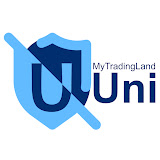What Does CFD Stand For?
CFD stands for Contract For Difference and it is an Over-The-Counter (OTC) derivative financial instrument.
Over-The-Counter means CFDs are not traded on a regulated exchange (such as a stock exchange) making CFDs cheaper & more flexible but more risky than Exchange-Traded-Derivatives (ETDs).
Derivative means that CFDs can be derived or created from any underlying instrument. Thus we have various CFDs like Forex CFDs, Stock CFDs, Index CFDs, etc.
Is Forex Trading A CFD?
Yes, retail online forex trading is carried out using CFD contracts because they are cheaper than using other trading ways such as options & futures.
In a forex CFD, you take a position on whether the exchange rate of a currency pair is going to rise or fall.
If you think the exchange rate will rise you buy CFD contracts & if you think it will fall you sell.
It is important to note that you don’t buy the currency, instead you buy the CFD contract.
When you trade using CFDs, you don’t own the currency pair because you didn’t buy it. What you bought is a contract that allows you to predict if rates will rise or fall.
A CFD contract allows you to trade something you don’t own because the currency pairs you trade are actually owned by your broker. He only allows you speculate on them for a fee as specified in the CFD agreement.
How Much is One Forex CFD?
The price of a forex CFD is the exchange rate of the currency pair you are speculating on.
Login to your trading platform to view the list of currency pairs. Go ahead and select the one you want to trade, then the buy & sell prices (exchange rates) will be displayed.
Each CFD contract represents one unit of a currency pair so if you want to speculate on 100,000 units of say EUR/USD, you must buy 100,000 EUR/USD CFD contracts.
Do I Have To Pay The Full Amount for a CFD?
No, you only pay a fraction of the total contract sum when trading CFDs, while your broker borrows you the balance.
This small amount you pay is called the margin while your broker extends you a loan for the balance.
The required margin depends on the leverage your broker specifies for the currency pair. If you broker specifies a 1:400 leverage, then you will pay a margin of 1/400 of the total contract size.
Do CFDs Attract Overnight Interest
Yes, when trading CFDs on margin, you pay a nightly interest on the loan your broker gave you to enable you trade. This interest is known as an overnight swap fee.
Are CFDs Dangerous?
Magnified Losses
Yes, CFDs are very dangerous products because they are traded on margin & losses are magnified. If your losses exceed the initial margin you deposited, your broker will forcibly close your trades (known as a stop-out).
Lets say you deposited a $10 margin to open a $10,000 trade, a loss as small as 0.1% will translate to 0.1% x $10,000 = $10 meaning your entire deposit is wiped out. Your risk exposure is not limited to your $10 margin but to the total contract sum of $10,000.
Counterparty Disappointment
Another danger about CFD trading is counterparty risk meaning the possibility that you broker may not be able to meet their own end of the bargain.
Your broker could widen the spread at any time or execute your trade at a higher price than you specified. Some brokers can also halt trading temporarily, etc.
Because CFDs are not traded on regulated stock exchanges, the controls are not as tight. There are no clearing houses, depositories, custodians etc.
You deal directly with your forex broker so there’s always a risk the broker could default or manipulate prices.
This is why when trading CFDs you must only register with regulated forex brokers with verifiable licenses
Are CFDs Banned Anywhere?
Because of their risky nature, CFDs are banned in the united States & this is why forex brokers don’t accept clients from the U.S.
Golden Rules of CFD Trading
CFDs Are Not Set & Forget Investments
You must always monitor your open CFD trades closely. CFDs should not be traded with a long term approach because the underlying asset does not belong to you & you pay interest every night a position is left open.
Losses Are Inevitable
CFD traders must be ready to accept losses & it doesn’t matter how good your strategy is. Losses will always come but the important thing is to ensure your net profit exceeds your net losses.
Before you open a trade, define an amount of money you are prepared to lose without feeling hurt. Once you lose that amount of money, close the trade. Always use Stop Loss Orders to limit your losses.
Use A Good Risk To Reward Ratio
Before you enter a trade always ensure that the dynamics are such at that your profit/reward is at least 2x your risk.
This means that the price at which you set your Take Profit should be at least double the price you set your Stop Loss.

Leave a Reply